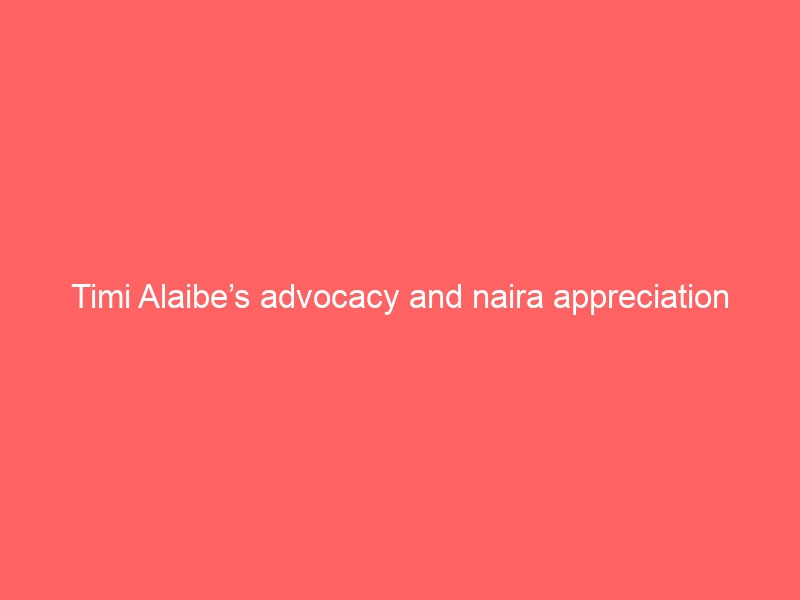Is there a correlation between stability in the Niger Delta region of Nigeria and value appreciation of the national currency, the naira? This question has become necessary in view of the seeming coincidence of the peace that has reigned in the country’s most sensitive yet problematic region, economically speaking, in the last few months, and what appears to be a steady appreciation of the naira, during the same period.
It must be, to all Nigerians, a heartwarming development that the national currency that was, up to about two months ago, maintaining a steady plunge, creating fears that it was headed for an exchange rate of N500 to the dollar, has recorded so much appreciation that, in a twinkle of an eye, we are today talking about an exchange rate in the region of relative appreciable value. There are indications that the appreciation will continue in the months to come.
Without doubt, the relatively better rate at which naira is exchanging for the dollar today is a direct fallout of the stability that has returned to the Niger Delta, the country’s golden goose. Safely say there is a definite link/correlation between the two. One has brought about the other.
Oil production and export have gone on without interruption from the activities of armed militants who appear to have woken up to the reality of the damage they were doing not just to the country but also to their immediate environment and their own economic prospects. The country is now selling oil, its main foreign exchange earner, more than it did for the better part of 2016. Higher oil proceeds means availability of foreign exchange to meet the requirements of Nigerians in such areas as personal travelling allowance, school fees, medical expenses, etc. Most importantly, for manufacturers who must buy foreign inputs for their products, access to dollar is no longer an uphill task. It wouldn’t be wishful thinking to assume that it’s a matter of time before the graph of prices of imported goods and their local counterparts with foreign inputs begins to point south. This would hopefully make life a little bit more bearable for Nigerians that have in the last one year groaned under the heavy burden of spiraling prices of goods and services.
The challenge before the government now is how to ensure the economic progress that has been made so far, in terms of realizing the country’s full potential in oil production and export, is sustained. Ability to achieve this will depend on how the government addresses the Niger Delta question. Thankfully, the government has in the past few months shown a greater commitment to engaging stakeholders in the region in dialogues that would hopefully help to address the question.
Timi Alaibe, arguably one of the few Nigerians with a good working knowledge of the Niger Delta, its problems and what is required to solve them, has canvassed, as one of the strategies for achieving the second pillar of the Niger Delta Development Master Plan which is on infrastructure and economic development, proper coordination of efforts by the different intervention agencies that have been set up to tackle issues pertaining to the development of the region. He advocates a sort of one-stop shop from where government’s initiatives in the region would be implemented, away from what applies currently, in which different agencies sometimes appear to work at cross purposes pursuing the same objective. This way, the issue of duplication of programmes and projects, which sometimes have ethno-political underpinnings, would be eliminated. It would also help the government in its effort to fight corruption and enthrone accountability and transparency in the execution of projects in the region.
Alaibe’s knowledge of the problems of the Niger Delta stems from the fact that not only is he a ‘son of the soil’ and feels what others in the region feel, but also because he was on the foundation staff of the Niger Delta Development Commission (NDDC) – the intervention agency created by the Obasanjo administration to handle infrastructural and socio-economic development of the region– as executive director, finance and administration and, at various times, acting managing director and substantive managing director.
He has been involved in the design and implementation of virtually all the developmental projects the commission has put in place since its establishment. His inside knowledge of the problems of the region and what is required to solve them placed him in good stead to author the Niger Delta Development Master Plan, the document that is designed to serve as the roadmap for the implementation of programmes, policies and initiatives that would address the Niger Delta question once and for all.
The government must sustain and, if possible, step up the dialogue it has initiated with stakeholders in the region, which has proved to be more politically and socio-economically beneficial to everybody than use of force. Inputs should include finding ways to design a framework for implementing development projects with better coordination than what has obtained in the past 16 years, just as Alaibe has suggested.
The expected increase in agricultural yields from the various government interventions, which would not only guarantee self-sufficiency in food production but would also boost export, would open up an equally vibrant source of foreign exchange for the country. That way, the vagaries of the international oil market would have little or no bearing on the country’s foreign exchange needs.
The current stability in the Niger Delta would not only be maintained, but would perhaps be elevated to a level whereby crises in the region would become an anathema even to the people of the region if the government maintains its current level of sincerity and commitment to involving the people in continuous dialogue aimed at finding lasting solutions to the problems of the region.












